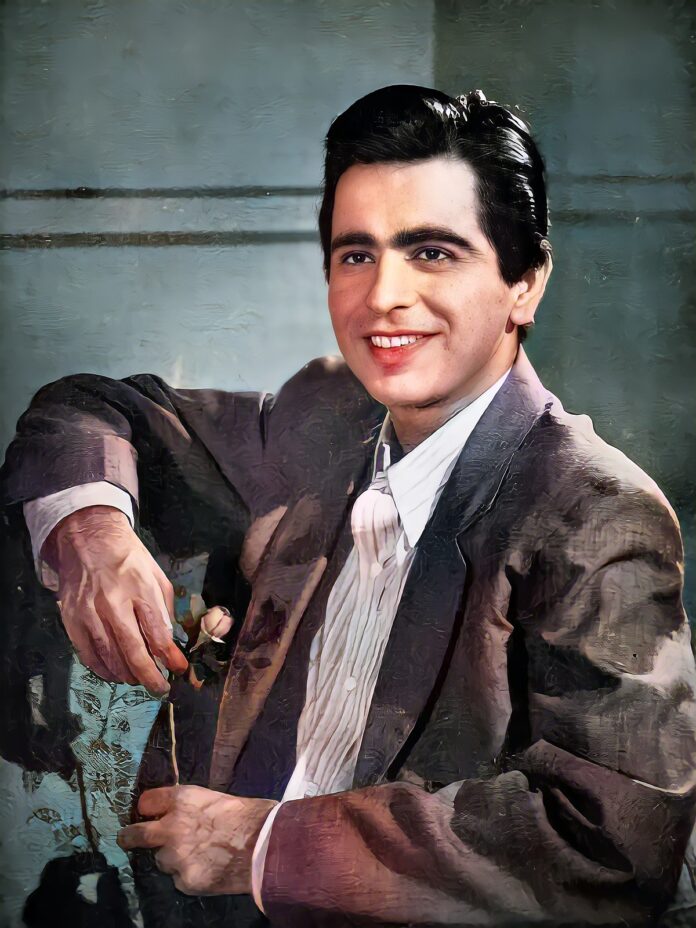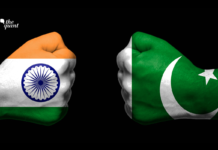Web Desk
Legendary Bollywood actor Dilip Kumar — one of the biggest stars in the golden age of Indian cinema passed away in the Indian port city of Mumbai on Wednesday at the age of 98.
“With a heavy heart and profound grief, I announce the passing away of our beloved Dilip saab,” Faisal Farooqui, a family friend, posted on Kumar’s official Twitter.
According to Indian media , Kumar had been admitted to the intensive care unit on June 30 to “address medical issues” related to old age. He was earlier admitted to the same hospital on June 6 after experiencing breathlessness.
Kumar is survived by his wife, Saira Banu, a popular leading lady in Bollywood in the 1960s and 1970s.
Condolences poured in as Bollywood and politicians alike mourned the loss of the actor. Pakistan’s President Arif Alvi and Prime Minister Imran Khan expressed their grief over the demise of the “greatest and most versatile actor”.
“I can never forget his generosity in giving his time to help raise funds for Shaukat Khanum Memorial Trust Hospital when the project was launched,” Prime Minister Imran Khan said in a tweet.
Indian Prime Minister Narendra Modi said that Kumar will be remembered as a “cinematic legend”.
“He was blessed with unparalleled brilliance, due to which audiences across generations were enthralled. His passing away is a loss to our cultural world,” he said.
Nicknamed “The Tragedy King” because of his brooding good looks, tousled hair and deep voice, Kumar played the lead in some of the Indian film industry’s most commercially successful films of the period, earning him iconic status.
But although a Bollywood legend, he missed out on international fame after turning down the chance to play Sherif Ali in David Lean’s 1962 classic Lawrence of Arabia. The part went to an Egyptian actor, Omar Sharif.
Kumar was born Yusuf Khan on December 11, 1922 in Peshawar, the north-western city of Pakistan. His father was a fruit merchant who took his family to Bombay, India’s entertainment capital in the 1930s.
But the son turned his back on the chance to take over the firm when the actress Devika Rani spotted him on his father’s fruit stall in the then Bombay, leading to a part in his first film, Jwar Bhata, in 1944.
Rani persuaded him to change his name, so he chose Dilip Kumar, allowing him to hide what he was doing from his disapproving father.
Although Jwar Bhata flopped and leading film magazines criticised his performance Kumar was undeterred and eventually broke through with the 1946 film Milan.
Among his most remembered roles was in the lavish historical romance Mughal-e-Azam, based on the life of one of India’s great Mughal princes.
The movie, released in 1960, was eight years in the making and cost a mind-boggling 15 million rupees, but soon became one of Bollywood’s biggest-grossing films of all time.
Kumar, who cited Hollywood greats Marlon Brando, Gary Cooper and Spencer Tracy as influences, later won acclaim in 1964 for the nationalistic Leader, screened against a backdrop of recent wars against China and Pakistan, English newspaper, Daily Dawn reported.
The 1970s saw fewer roles, as younger actors like Amitabh Bachchan took centre stage.
He even took a five-year break after a string of flops, returning in 1981 with the hit Kranti (revolution) and a part alongside Bachchan in Shakti (strength) the following year, plus a string of character roles.
After a series of badly-received films, he took up a more active role in politics in 1998 and worked to end the feuding between India and Pakistan.
The same year saw him receive the highest civilian honour in Pakistan, angering Hindu nationalists. Two years later he became a lawmaker for the then-opposition Congress party.
In 2006 he accepted a lifetime achievement award at India’s National Film Awards in recognition of his contribution to Indian cinema.















